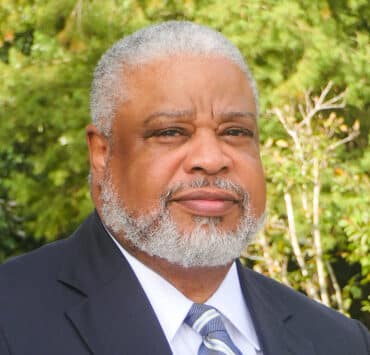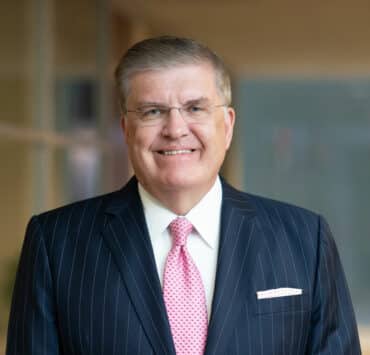|
Getting your Trinity Audio player ready... |
Growing up, Tasker Generes learned several vital lessons from his parents. As the eldest son in an Asian family—his mother is from Shanghai and his father’s family is from Toulouse, France—he learned the importance of responsibility and taking care of his family. Generes has extended both that responsibility and care to those he serves as global head of strategy and transformation at ServiceNow.
Before he started building elite-level transformation experiences for enterprise, he started his first lawn mowing business at twelve and evolved it into a landscaping company focused on quality and beauty. That business would help put him through college. That drive hasn’t diminished.
Since that time, Generes has lived in forty-six states and numerous countries across the globe, familiarizing himself along the way with countless cultures, traditions, and ways of life. This is perhaps why he has accumulated so much success in bringing new perspectives, practices, and organizational success throughout his career.
Generes spoke with Profile about the complexity of digital transformation, the leadership qualities needed to necessitate that transformation, and the value of “the pen exercise.”
Could you talk about some of your prior experiences taking on digital transformation for enterprise and how you feel it helped impact your efforts at ServiceNow?
My focus has always been on the customer. Do right by the customer and your team will be successful. The digital part of transformation is easy. Anything can be done with technology, but you also must think about the outcomes of the transformation. Are they human-centric? If they are not, those transformations will tend to fail. Transformation is the hard part.
Think about how hard it is to change yourself, and then think about changing someone else. At IBM, I learned that many of the projects I consulted on, while being technically successful, weren’t always fully adopted because of the organizational agendas that didn’t always mesh.
So when I came to ServiceNow, my focus was ‘How do we help empower everyone to understand that everything is a service?’ Service is a table with four legs: people, process, technology, and information. Take one of those legs away and the tabletop becomes shaky. Take two away and the table collapses.
This focus on the customer and the end-to-end service has helped my efforts at ServiceNow because it isn’t about my agenda. It is about how we can help our customers have a better journey, helping them solve for moments that matter, delivering outcomes they care about.
What creates challenging complexity when it comes to digital transformation?
There are really three things that drive complexity: lack of leadership and purpose, miscommunication, and personal agendas. If you don’t have leadership and purpose, it is a “science project” that may or may not ever come to fruition. And if there is miscommunication, the value of your project may never reach its full potential. Finally, personal agendas that don’t align to the purpose always end up unsuccessful.
I’ve been lucky to learn from some great people along the way, and the value I feel I’ve been able to bring is transparency. This transparency really cuts through the complexity to what we are doing, why does it matter, and how can we help each other to find success.
How do you enable technological transformation while also focusing on leadership components that are essential to making a transformation stick?
The only way to enable any transformation is to focus on servant leadership. I build teams that contain many leaders, but those leaders are also all individual contributors, adding their diversity to create a better outcome. And when you are innovating, you can’t serve your customer if you don’t know them. You can’t understand what level of change they are trying to overcome in this transformation if you just focus on the features or capabilities.
I usually run an exercise that helps all to look at the different levels of change one may encounter. Pick up a pen and write, “I am going to be great today!” Now switch pens, write it again. Now switch hands and write it again. Then take off your shoe and write it with your foot. Switching pens is just a “technology” change, switching hands is a “process” change. Switching to your foot is a “language” change. Then now add people that have disabilities, then you must realize that their level of change is “cultural.” If you don’t realize that level of change, your transformation will never be successful. That awareness is part of the soft leadership skills that are so important and help you communicate and gain success.
What does it take for a transformation leader to head a global organization?
My top three are: understand the change and be willing to learn; meet your team where they are to build a bridge together; and actively listen to invite open and safe communication. Additionally, when you are leading a global organization, you also need to take the time to learn about the cultures of your teams. I recommend the book The Values Compass by Dr. Mandeep Rai. It takes you through what 101 countries teach us about purpose, life, and leadership.
At this moment in time, what challenges do you look forward to as you continue to build out this transformation at ServiceNow?
Working at a company that is as successful as ServiceNow is a blessing but also creates challenges along the lines of “if it’s not broken, don’t fix it.” People can be protective of the wall they have built even though they know it is impeding progress.
Many companies have done the “right” thing for too long. Take Nokia, for example: great phone, but then the iPhone came out and we all know the result. I feel particularly blessed because the team I work with is such a diverse set of individuals with a common purpose: to help our company’s ambition of being the defining enterprise software company of the 21st century. This is transformation you can sink your teeth into!

